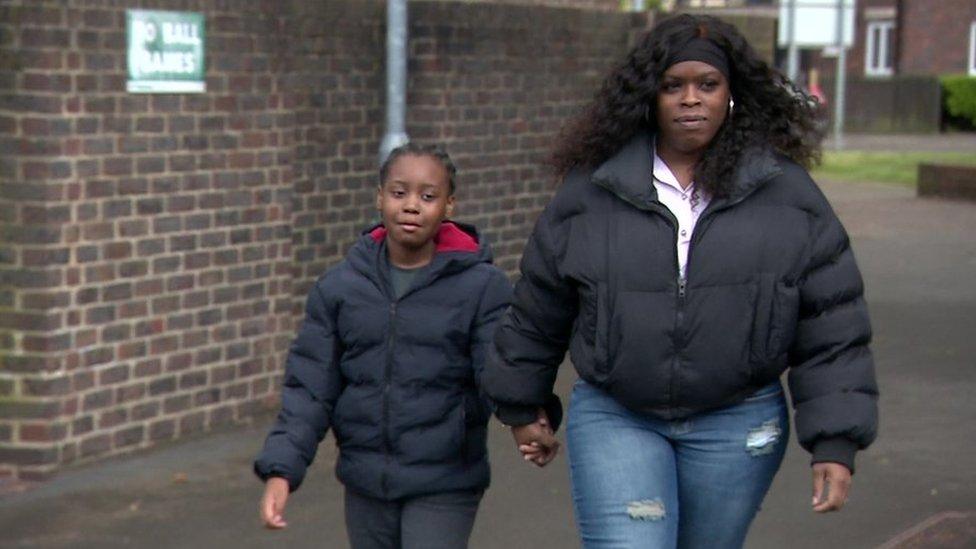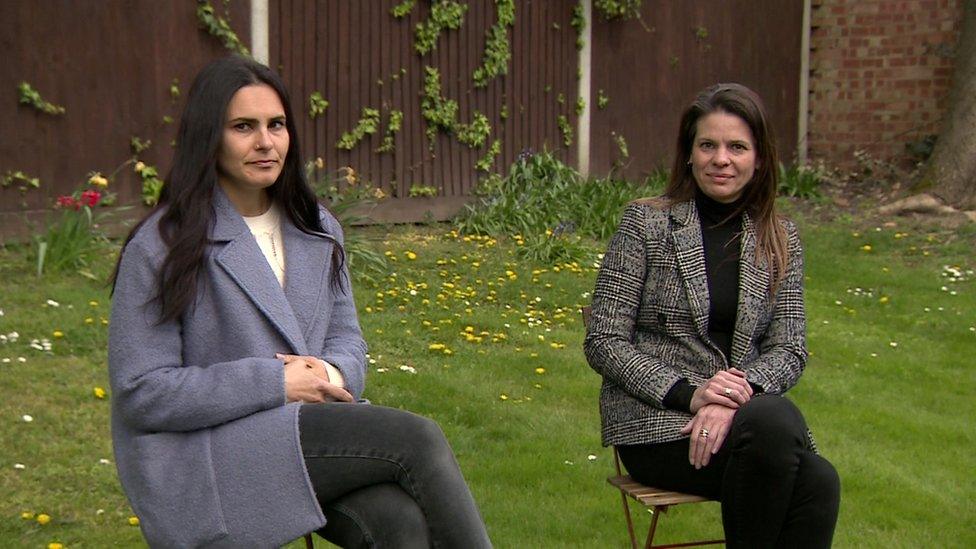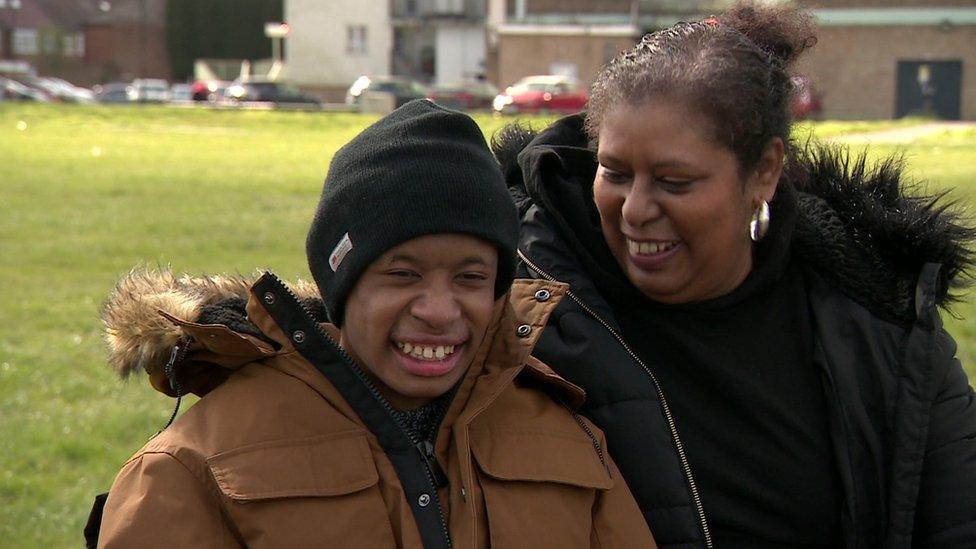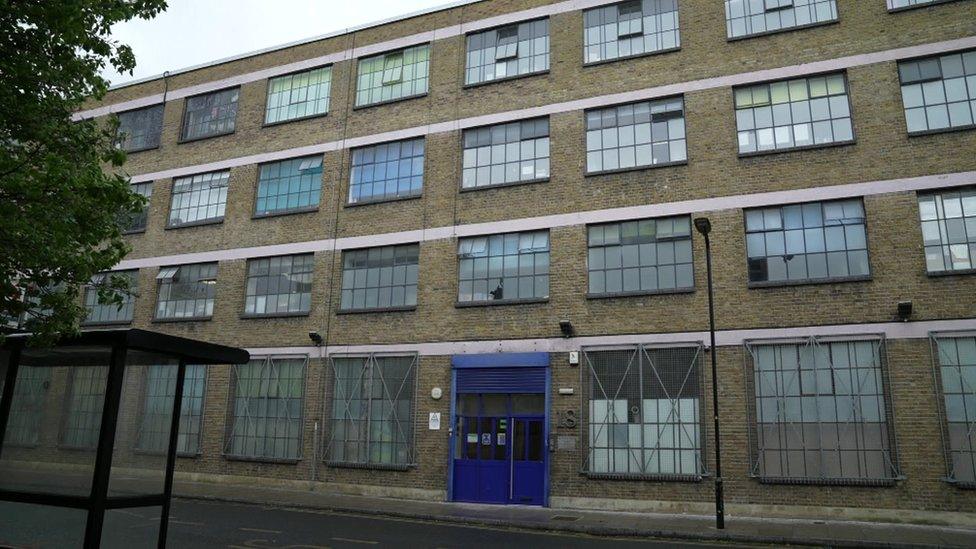Parents fear for pupils' mental state at £53,000 fee school
- Published

Donna and her 10-year-old son Javon
A private special needs school, whose directors include businessmen associated with the Winterbourne View care home scandal, has been accused of putting profit ahead of pupils' needs.
Annual fees paid by councils to send pupils to Leaways School in east London are £53,000 - higher than Eton.
One parent told a BBC investigation she is pulling out her son as she fears for his mental state if he stays there.
However, Leaways denied the claims that it put money ahead of welfare.
In a statement, the school said: "We strongly refute the suggestion profit is ever put ahead of the needs of children.
"The vast majority of families are happy with our school and they see their children doing very well here."
The school says it was "deeply saddened to hear the opinions of a small minority... of our parent and staff community".
'Sold a dream'
One is Donna, who fought to get her 10-year-old son Javon into Leaways almost two years ago, believing the school would provide state-of-the-art support for an autistic child.
Now she says: "I was sold a dream. They actually have no idea... I feel like if my son stays there any longer, it will be detrimental to his mental state."
Being there makes him anxious, she says, often he becomes mute, not speaking all day, or isolating himself for hours in the school's sensory room.
'Chaotic environment'
Lee Boyce, a former assistant head at Leaways, describes "a kind of systemic failure at a leadership level to... understand the complexity of those children's needs and to put in place provision that met them".

Former Leaways assistant head Lee Boyce (R) with another former teacher, Lucy
When she left in 2019, she says working conditions were stressful and a high staff turnover and absence rates contributed to a "chaotic environment" for pupils who were often already volatile.
Lee, now a principal inclusion advisor for a London borough, specialises in keeping such pupils in mainstream schools and says the £53,000 could be better spent.
"If you had even half of what you get for a child at Leaways... you could do amazing things," she says.
Reward and responsibility
Leaways is part of Kedleston Group, which runs 13 schools and homes in England.
Kedleston's directors include Denis and Paul Brosnan. In 2011, they were directors of Castlebeck, which owned the Winterbourne View private hospital near Bristol, where serious abuse was uncovered by a BBC Panorama investigation.
An inquiry the following year found Castlebeck "took financial reward without the responsibility".
Some current Leaways staff believe profit is paramount at the school.
"It's a business that happens to be a school," one support worker told the BBC.
In 2019, Kedleston Group, which is owned by a Jersey-based holding company, had:
a £5.3m operating profit, up from £4m in 2018
a turnover of £32.7m, up nearly £4m on 2018
operating profit on its London schools of £740,000
'Failing him'
Donna says Javon's Education and Health Care Plan (EHCP) - a legal document which details a child's special educational needs and the support required - was not reviewed for nearly two years.
By law, these documents must be reviewed annually and this timescale remained in place during the pandemic.
Donna claims the amount of speech and language therapy and emotional literacy coaching provided by the school fell below the levels specified in his plan.
"How do you explain to a child with autism, that in actual fact mum got it totally wrong?"
Donna: "How do I explain to him I got it wrong?"
Donna is not the only parent wanting to remove her child.
Another, who asked not to be named, also told of delays to educational reviews and inadequate therapy.
At first sight Leaways "appears to be a super specialist school, glory and glitter. It ignites hopefulness and it's just not that", she said.
'No teacher'
In 2016, when Brenda's son Ethan started at Leaways, she says: "Everything was perfect."
But in 2017 the head teacher left, followed by Ethan's teacher, and the class was led by a teaching assistant for most of the next school year, Brenda adds.
Leaways says the use of teaching assistants to lead classes is "kept to an absolute minimum" and only when the alternative is "not to have the children in school at all".
"Where possible we ensure that the teaching assistant is experienced, has an aptitude for leading the class and has a higher-level qualification," it said.
"The school does not have a materially different staff turnover rate to the industry norm."
But without a class teacher, Brenda says Ethan became anxious and aggressive and started having seizures.

Brenda's son Ethan now attends a state-run special needs school near their home in Enfield, north London
When he was checked out for epilepsy at Great Ormond Street hospital, the consultant said: "It's not epilepsy. It's anxiety," she remembers.
Eventually the school appointed a new teacher, "a godsend", according to Brenda, and Ethan's mental state improved,
But in the summer of 2019, she also left and Brenda decided it was time to remove Ethan.
The family felt there was no-one to hear why they were taking out their son: "There was nobody to tell. We just weren't confident any more," says Brenda.
'Little training'
Lucy, who asked not to use her full name, was Ethan's teacher in his last year at Leaways.
She was hoping to gain experience as a specialist autism teacher, an area where she had no formal training, but within weeks of starting in the school's specialist unit, says she was asked to lead it.
She declined, saying: "It wasn't what I was expecting... It became clear quite quickly that the school were making a profit from not meeting the needs of children."

Leaways is in a converted building in Hackney, east London
Some of the teachers were unqualified, she says, and support staff often had very limited experience and training.
"When you start working there, you're just kind of thrown in," she says, adding: "It's harder to teach children with complex needs than it is to teach typically developing children."
She says during her time at Leaways, access to therapies was limited. For example, there was one part-time counsellor to support some 50 children with social, emotional and mental health needs.
She says children in the mainstream school where she now works "have better access to therapy".
"This very high fee-paying school is just not meeting the need."
'Consistent standards'
Leaways emphasises that Ofsted's latest report,, external published in March, says the school's leaders "ensure standards are met consistently", that children are "well supervised" and staff supervision is "proportionate and appropriate".
"We are also regularly visited for quality assurance by the local authorities who place children with us, who have also raised no concerns of any kind.
"No school is perfect and all have faced challenges as a result of Covid-19.
"Leaways has faced the dual challenges of both the pandemic and an industrial dispute.
"Where improvements are required, we are actively working with parents, our colleagues and all parties to make positive changes and progress wherever they are needed."
A long-running dispute over pay and conditions ended recently with a deal between Leaways and the National Education Union.